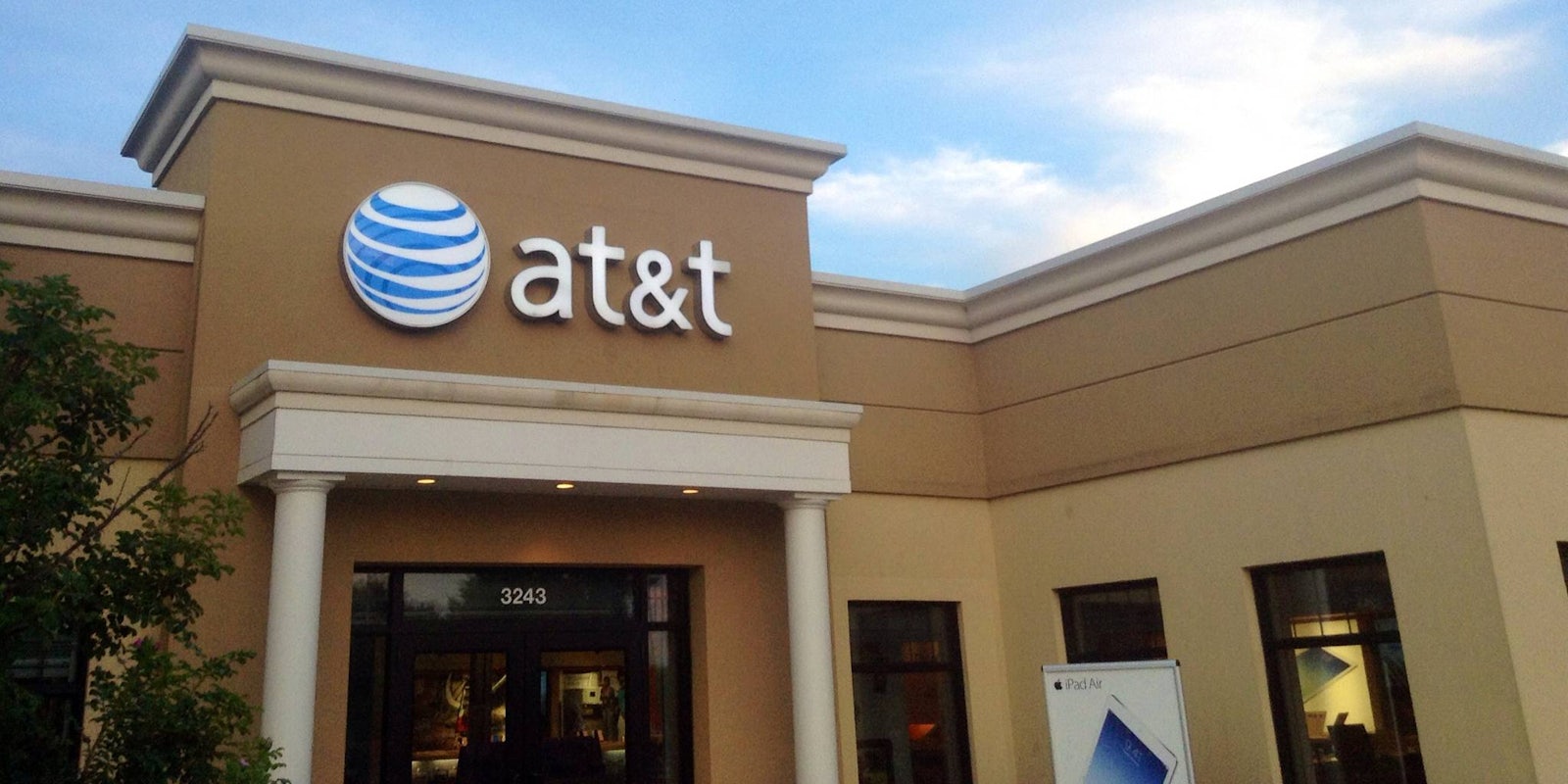AT&T has failed to make its new low-cost internet service available to eligible households despite obligations to do so, according to a report released Monday by the National Digital Inclusion Alliance (NDIA).
As part of the merger agreement between AT&T and DirecTV, the Federal Communications Commission (FCC) required the internet service provider to offer its product for either $5 or $10 a month to low-income users. The condition applied to areas where internet speeds of at least 3Mbps are available.
However, the company has decided not to make such a service available to users in regions where the company’s network is slower than 3Mbps, a decision that appears to negatively affect access to Federal Supplemental Nutrition Assistance Program (SNAP) participants—the primary target of the low-cost offering.
The trick of AT&T’s decision comes in the wording of the merger agreement. In it, the FCC lays out the affordable service plan, stating AT&T must offer its service for no more than $10 in areas where download speeds of 10Mbps or 5Mbps are available. In areas where speeds of at least 3Mbps are available, AT&T must offer the service to qualifying households for no more than $5.
What the FCC failed to specify was what AT&T is to offer users in areas where speeds are under the 3Mbps threshold. Instead of simply expanding the program to SNAP participants in areas where AT&T’s infrastructure is below standard, the company chose to exclude those areas.
The affected areas aren’t just rural regions that are typically connectivity dead zones, either; according to findings from Connect Your Community, about 21 percent of all Census blocks in the cities of Cleveland and Detroit, primarily inner-city neighborhoods with many low-income households, only have access to connection speeds of 1.5 Mbps or less.
The NDIA proposed to AT&T that it offer its slower speed services for $5 per month to households that qualify under the same standards proposed by the FCC, arguing that any access is better than no access. According to the organization, AT&T declined the proposal, stating “AT&T is not prepared to expand the low-income offer to additional speed tiers beyond those established as a condition of the merger approval.”
Those in areas where AT&T’s download speeds are below 3Mbps can still access the service. They just have to pay full price—$30 per month for the first 12 months—for the substandard service.
“The vast majority of the locations where we offer internet service are able to subscribe to internet speed tiers at 3Mbps or higher,” a spokesperson for AT&T told the Daily Dot. “Our low-cost internet service speed tiers for qualifying households participating in SNAP—10Mbps, 5Mbps or 3Mbps—were determined by the FCC as part of its Order approving the DTV merger.”
AT&T points specifically to the condition dictated by the FCC, essentially stating that it will do exactly as much as was required of it and no more.
According to a support page from AT&T, the services the company does offer to qualifying low-income households are still subject to data caps, and the overage costs for those who exceed their monthly data allowance are as much or more than the cost of the service itself.
Users on AT&T’s DSL plan receive an allotment of 150GB per month, while U-verse subscribers get 1TB of monthly data. AT&T charges $10 for an additional 50GB of data—the same or double the price for the initial monthly access cost—which subscribers are charged for even if they use less than the full 50GB.
AT&T also assigns its low-income users to the highest data tier available in their area; if a person has access to 5 or 10Mbps download speeds, they are automatically given that plan for $10, even if they would rather pay $5 for a 3Mbps connection.
The FCC did not provide comment on the report from the NDIA and simply directed the Daily Dot to the text of the low-income condition found within the order approving the merger of AT&T and DirecTV.
The incident just goes to show that despite the best of intentions, corporations will do everything in their power to resist being regulated into basic human decency.
H/T Ars Technica


